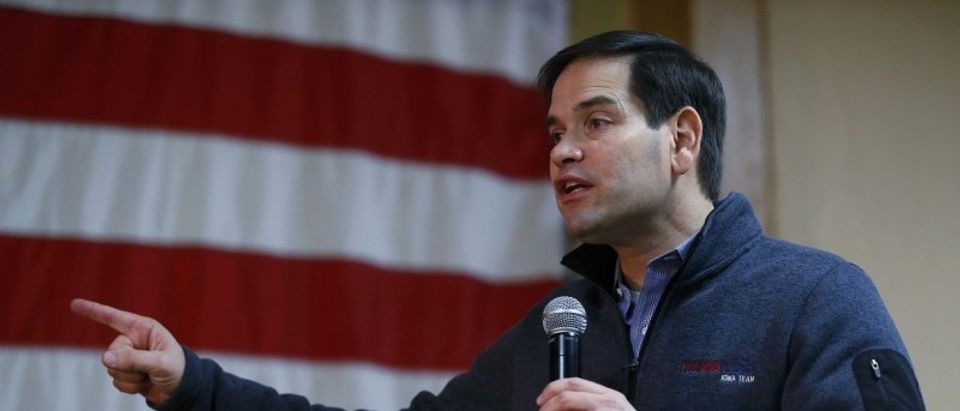With a bronze medal from Iowa and malfunction in New Hampshire, Marco Rubio heads to South Carolina in need of a win — and with his sites locked on all the candidates who could take it from him.
Newly at the top of his hit list is frontrunner Donald Trump, but Rubio was sure to save some ire for old favorites. “Jeb Bush has no foreign policy experience, and I respect his family,” the senator said on Thursday. “I thank God every day that George W. Bush was President, but Jeb has no foreign policy experience.”
That’s not a bad line of attack going into the Palmetto State, where one in four Republican primary voters in 2008 and 2012 were either active duty members of the military or veterans. But in this case Rubio’s critique was more revealing of himself than his target. For as much as Rubio has sought to play the part of the fresh new face of the GOP, he’s actually kind of a throwback — and not in a good way. When it comes to foreign policy, Rubio even more than Jeb is an heir to Bush/Cheney, and he’s hawking a rash plan to needlessly risks American security in a dubious effort to make the Middle East safe for democracy.
For evidence of how little Rubio has learned from the past decade and a half of foreign policy, look no further than the war in Iraq. While Jeb notoriously fumbled his several answers to the question of whether, in retrospect, the 2003 invasion was a good idea, in the end he got it right. “Knowing what we know now, … I would not have engaged,” he said. “I would not have gone into Iraq.”
While Bush can be forgiven some family awkwardness on the Iraq issue, Rubio has no such excuse — and also no such moment of clarity. In March 2015, with ISIS running rampant, Rubio insisted invading was not a mistake. In fact, he said, “the world is a better place because Saddam Hussein isn’t running Iraq.”
He doubled down on that position in May during an interview with “Fox News Sunday” host Chris Wallace. George W. Bush “wasn’t dealing with a Nobel Peace Prize winner” in Hussein, Rubio argued, repeating his contention that the “world is a better place because Saddam Hussein is not there.” Looking at the horrific violence in Iraq today, that’s a difficult case to make — and it was equally implausible when Rubio made it. After all, as former President Bush himself has noted, the 2003 invasion created a power vacuum which allowed al Qaeda to infiltrate Iraq for the first time while paving the way for the rise of ISIS.
Pre-invasion Iraq, though by no means a free or democratic country, was a far more stable place than the Iraq of 2016. We don’t have to like or endorse a dictator like Hussein to concede, as Rubio is loath to do, that Hussein’s perverse order was preferable to ISIS’ barbaric chaos (especially for Iraqi Christians). Contrary the senator’s claim, the world is not a better place because America invaded Iraq.
Rubio’s refusal to admit the 2003 invasion was a mistake speaks to a dangerous obstinacy and lack of judgment which is worrisome in a would-be Commander-in-Chief. It is important for a president to know when to fight, but doubly important to know when to leave well enough alone. Rubio’s record on Iraq — not to mention his more recent positions, like his reckless willingness to risk hot war with Russia over a no-fly zone in Syria — suggests that latter skill is not part of his programming. If he cannot admit the disastrous consequences of the 2003 invasion, can Rubio be trusted to have the wisdom of restraint when he is at the helm?
Bonnie Kristian is a fellow at the American Security Initiative Foundation. She is a contributing writer at The Week and a columnist at Rare, and her writing has also appeared at Relevant Magazine and The American Conservative, among other outlets.












